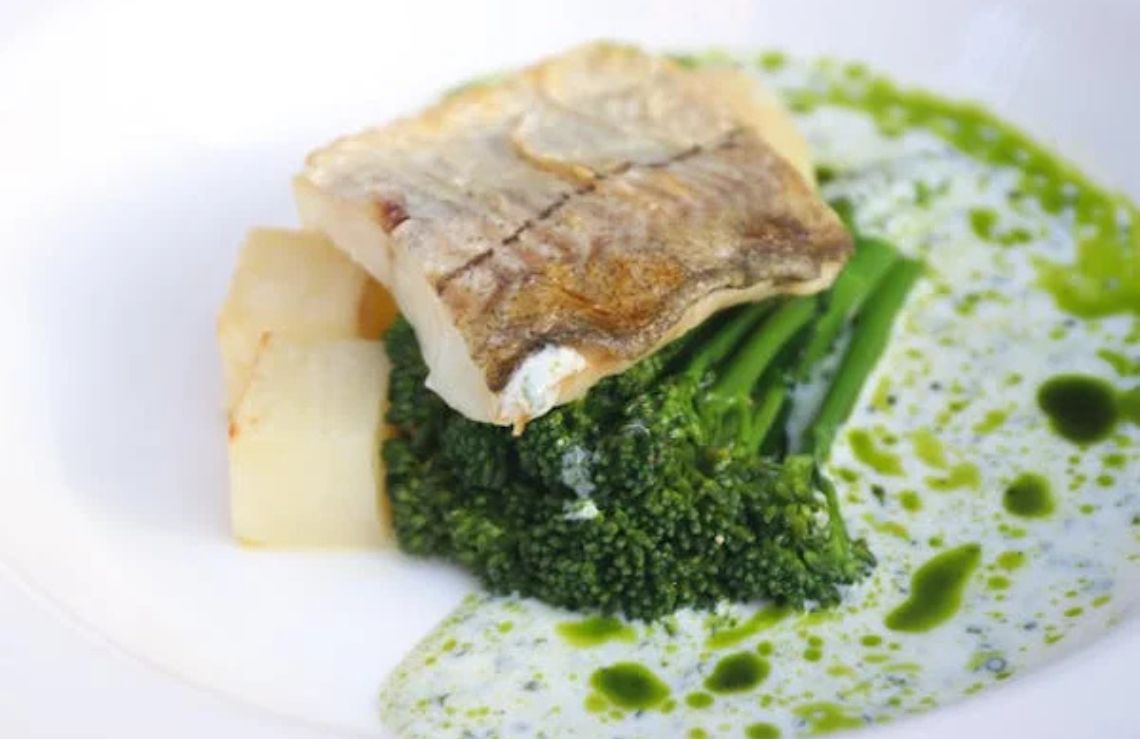
Sugary drinks, like sodas, sweetened coffees, energy drinks, and even some fruit juices, contain high levels of added sugars that can impact your health in numerous ways. Unlike whole foods, sugary drinks provide calories without essential nutrients and often lead to spikes in blood sugar levels, which can increase cravings, weight gain, and the risk of metabolic diseases over time. Making a conscious effort to avoid sugary drinks helps stabilize energy, supports weight management, and contributes to better overall health.
“Sugary drinks are quick calories without the nutrition. By avoiding them, you can focus on foods and drinks that truly nourish your body.”
Why Avoiding Sugary Drinks Matters
When it comes to added sugars, drinks are one of the main culprits. Sugar-laden beverages can lead to weight gain, not just because of the extra calories but because they’re easy to consume in large quantities without realizing it. These calories, unlike those from whole foods, don’t satisfy hunger or provide any real nutrition, often leading to overeating. Sugary drinks also cause rapid spikes and drops in blood sugar, which can leave you feeling tired, sluggish, and craving more sugar.
Additionally, sugary drinks are closely linked to increased risks of various health conditions, such as:
- Obesity: Excessive sugar intake contributes to weight gain and body fat storage.
- Type 2 Diabetes: Sugary drinks increase insulin resistance, a major risk factor for type 2 diabetes.
- Heart Disease: High sugar intake is associated with increased risks of cardiovascular disease.
- Dental Health: Sugars in drinks are a leading cause of cavities and tooth decay.
“Sugary drinks are empty calories that bring more risks than rewards. By choosing healthier options, you protect your health and enhance your energy.”
The Hidden Sugars in Common Drinks
Some of the highest levels of added sugars are found in beverages, often in drinks you might not expect. Here’s a breakdown of common sugary beverages and their potential impact:
- Soda: The classic sugary culprit, a single can of soda can contain up to 10 teaspoons of sugar—well over the recommended daily limit for added sugars.
- Sweetened Coffee and Tea Drinks: Lattes and iced coffees are often loaded with added syrups, flavored creamers, and sugars that quickly add up.
- Fruit Juices: Although they seem healthy, many store-bought juices contain added sugars or lack fiber, making them just as high in sugar as sodas.
- Energy Drinks: Marketed for boosting energy, many of these drinks have as much sugar as soda, alongside high amounts of caffeine.
- Sports Drinks: Unless you’re a high-performance athlete needing electrolyte replenishment, these drinks add unnecessary sugar and calories.
“Hidden sugars are everywhere—reading labels and choosing whole foods over processed drinks can help you steer clear of excess sugar.”
Healthier Alternatives to Sugary Drinks
Replacing sugary drinks with healthier choices is easier than it might seem. These options help you stay hydrated, energized, and satisfied without the sugar crash:
1. Water (Plain or Infused)
Plain water is the ultimate drink for hydration and is completely calorie-free. If plain water feels too boring, try adding a slice of lemon, cucumber, or a few mint leaves for flavor.
2. Herbal Teas
Herbal teas come in many flavors and are naturally free from sugar and caffeine. You can enjoy them hot or iced, and they’re great for keeping hydrated while adding variety.
3. Sparkling Water with a Twist of Fruit
For those who miss the fizz of soda, sparkling water with a splash of citrus or berry can be a refreshing alternative without the sugar.
4. Diluted 100% Fruit Juice
If you enjoy juice, try diluting 100% juice with water. This reduces the sugar content per serving and gives you a lighter version that still offers a hint of fruit flavor.
5. Kombucha (Unsweetened)
If you’re a fan of more flavorful drinks, unsweetened kombucha is a fermented tea with a fizzy texture, offering probiotics and a low-sugar content if you choose the right variety.
“Choosing healthier alternatives to sugary drinks not only reduces your sugar intake but supports long-term energy and hydration.”
Tips for Reducing Sugary Drink Intake
1. Start Gradually
Reducing sugary drinks doesn’t have to be an overnight change. Start by gradually cutting back—if you’re used to drinking multiple sugary drinks a day, try reducing the number each week.
“Gradual changes can lead to lasting habits. Cutting down on sugary drinks a little at a time makes the transition easier and more sustainable.”
2. Read Labels Carefully
Sugary drinks often disguise sugar content with terms like “high-fructose corn syrup,” “fructose,” and “sucrose.” Reading labels can help you identify hidden sugars and make informed choices.
3. Prepare Drinks at Home
Making your own coffee, tea, or juice at home allows you to control the ingredients and avoid added sugars. Homemade drinks can be just as enjoyable and healthier.
“Preparing drinks at home puts you in control. You get to decide how much, if any, sugar is added, making your drink both healthier and more tailored to your taste.”
4. Use a Sugar-Free Flavor Enhancer
Sometimes it’s the flavor you miss, not the sugar. Look for sugar-free flavor enhancers or fresh herbs like mint, basil, or a splash of citrus to add a bit of taste without any added sugars.
5. Find a Supportive Community or Partner
Having a friend or family member who’s also working to reduce sugary drinks can provide accountability and support. Share your goals, swap tips, and encourage each other along the way.
Common Myths About Sugary Drinks
Myth 1: “Diet Soda is a Healthy Alternative”
While diet sodas are sugar-free, they often contain artificial sweeteners, which may increase sugar cravings and affect metabolism. Research suggests that artificial sweeteners might even stimulate appetite, leading to more calorie consumption in other forms.
“Diet sodas may be sugar-free, but they aren’t necessarily a healthier choice. Opt for naturally sugar-free drinks for a better option.”
Myth 2: “Fruit Juices are Always Healthy”
Though they may seem natural, many fruit juices contain added sugars or lack the fiber of whole fruit, making them easy to overconsume. When choosing juice, opt for 100% juice and consume in moderation.
Myth 3: “Energy Drinks are Necessary for Performance”
Energy drinks may seem helpful for an extra boost, but they’re often loaded with sugar and caffeine, leading to energy crashes. For a better alternative, try water, green tea, or coffee without added sugar.
Benefits of Avoiding Sugary Drinks
Avoiding sugary drinks offers a range of health benefits, from weight loss and stable energy levels to improved dental health and lower risk of chronic diseases. Reducing sugar intake can also improve mental clarity, mood stability, and energy throughout the day.
- Weight Loss: Sugary drinks add unnecessary calories. By avoiding them, you can reduce your overall calorie intake and support weight loss goals.
- Stable Blood Sugar Levels: Without sugar spikes, you’re less likely to experience crashes, helping you maintain steady energy and reduce cravings.
- Better Heart Health: Lowering sugar intake reduces the risk of high blood pressure, inflammation, and other cardiovascular risks associated with excess sugar.
- Improved Dental Health: Sugary drinks are a leading cause of cavities and tooth decay. Switching to sugar-free alternatives helps protect teeth and gums.
- Enhanced Digestion: Excess sugar can contribute to bloating and disrupt digestion. Avoiding sugary drinks helps improve gut health and reduces stomach discomfort.
“Skipping sugary drinks is a small change with big health payoffs—weight control, stable energy, and a reduced risk of chronic disease.”
How to Handle Cravings for Sugary Drinks
- Try Naturally Sweetened Alternatives Craving something sweet doesn’t mean you have to reach for soda. Opt for naturally sweetened herbal teas or add a hint of honey or a fruit slice to your drink for a natural boost without processed sugars.
- Replace with Naturally Hydrating Foods Sometimes the craving for something sweet is a sign of dehydration. Water-dense foods like watermelon, cucumbers, or oranges provide natural hydration and satisfy the urge for a refreshing treat.
- Practice Mindful Drinking If sugary drinks have been a habit, try drinking more mindfully. Focus on how the drink makes you feel, noticing the energy boost from water versus the crash that follows sugary beverages.
- Distract Yourself from the Habit Often, reaching for a sugary drink is more of a habit than a need. Try breaking the routine by going for a walk, drinking a glass of water, or choosing a healthy snack to curb the craving.
“Cravings for sugary drinks often come from habit rather than hunger. Redirecting your attention or choosing a naturally hydrating food can help break the cycle.”
Final Thoughts
Avoiding sugary drinks is one of the simplest, most effective ways to improve your health and well-being. By choosing nutrient-dense beverages and staying hydrated with water or herbal tea, you’re making a positive choice for your body and setting the foundation for a healthier lifestyle. Swapping out sugary drinks for healthier options helps reduce unnecessary calorie intake, curbs cravings, and supports a more balanced diet. Whether for weight loss, better digestion, or long-term health, cutting back on sugary drinks is a small change that can lead to big benefits.
“Every sip counts—choosing to avoid sugary drinks is a commitment to better health, more energy, and a stronger foundation for your wellness journey.”


